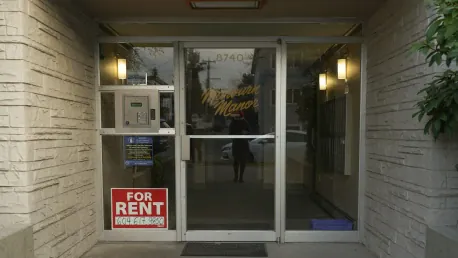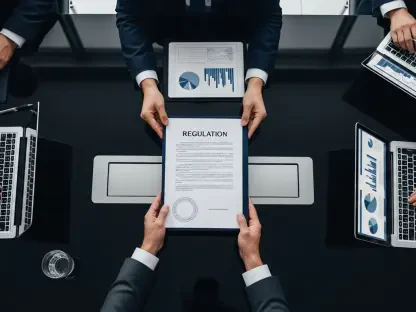In an effort to crack down on unlicensed short-term rentals (STRs), the city of Steamboat Springs has shifted its enforcement strategy. The new approach targets not just property owners but also property managers who advertise or manage these illegal rentals. With a notable increase in cases and a municipal court system struggling to keep up, city officials believe that holding property managers accountable could significantly improve compliance and streamline the enforcement process.
New Enforcement Strategy
Shifting Focus to Property Managers
Previously, Steamboat Springs concentrated its STR regulatory efforts primarily on property owners. However, City Attorney Dan Foote has announced that the city will now also focus on property managers who play a key role in facilitating unlicensed rentals. This shift comes after the city observed several property managers advertising rental properties without the necessary licenses, which constitutes a clear violation of existing regulations. By extending accountability to property managers, the city aims to deter the proliferation of unlicensed STRs more effectively.
In the past year, the city has prosecuted 26 cases of unlicensed STR operations, a number that matches the total cases filed the previous year. This increase in enforcement is attributed to the appointment of a proactive new enforcement officer dedicated to addressing STR violations. However, these cases have placed considerable strain on the municipal court system due to their complexity and the extensive legal proceedings involved, often leading to extended court hours. The fines for advertising or operating an unlicensed STR are steep, reaching up to $2,650 per day, in addition to a two-year ban on STR operations for both the property and its owners.
Efficiency of Targeting Property Managers
Foote emphasized that targeting property managers could prove highly efficient, as some manage multiple unlicensed properties. By focusing on these managers, the city hopes to address the issue at its source and achieve broader compliance. The new strategy involves sending warning letters to property managers, urging them to ensure that all their listed properties are correctly licensed. The city is currently investigating an additional 10 properties and estimates that there are between 60 to 70 properties with expired licenses still being rented out, highlighting the necessity of this revised enforcement approach.
Steamboat Springs currently regulates approximately 2,230 active, licensed STRs, with specific zoning regulations in place to control the number of permitted rentals in different areas. The resort base and downtown areas, designated as green zones, allow STRs without restriction if licensed. In contrast, other zones have caps or outright bans on STRs, with some properties grandfathered in. By maintaining these zoning regulations, the city aims to balance the interests of residents and the local tourism industry.
Broader Impact and Community Response
Support from Council Members
Council Member Michael Buccino has expressed strong support for the city’s new enforcement strategy. He noted that smaller property management firms are often involved in managing these unlicensed rentals and that holding these managers accountable could motivate property owners to comply with licensing requirements. Buccino believes that this approach will not only enhance regulatory compliance but also ensure a level playing field for all STR operators in Steamboat Springs.
The council’s backing of the revised strategy underscores the importance of addressing STR violations comprehensively. By involving property managers in the accountability process, the city aims to foster a culture of compliance and responsibility within the STR market. This holistic approach is expected to yield better results in the long term, reducing the number of unlicensed rentals and alleviating the burden on the municipal court system.
Regulating the Licensed STR Market
The ultimate goal of Steamboat Springs’ enforcement efforts is to uphold the integrity of the licensed STR market, ensuring that all operators adhere to local laws and regulations. By targeting property managers, who often handle multiple rentals, the city can more effectively manage the market and prevent the continued operation of unlicensed properties. This strategy not only addresses immediate violations but also discourages future non-compliance by emphasizing the legal and financial consequences of operating without a valid license.
To achieve this, the city plans to continue monitoring and investigating potentially unlicensed STRs, issuing fines and penalties as necessary. The focus on property managers complements existing efforts to regulate property owners, creating a comprehensive enforcement framework that addresses all aspects of the STR market. Through this balanced approach, Steamboat Springs aims to maintain a fair and legal STR environment, benefiting both property owners and the local community.
Ensuring Long-Term Compliance
In an effort to address the issue of unlicensed short-term rentals (STRs), the city of Steamboat Springs has updated its enforcement strategy. The city is now focusing on holding not only property owners but also property managers who manage or advertise these illegal rentals accountable. This shift comes amid a notable rise in violations and a municipal court system that is overwhelmed and struggling to manage the caseload.
City officials believe that by targeting property managers as well, they can significantly enhance compliance rates. Ideally, this new strategy should streamline the enforcement process, making it more efficient. By focusing on property managers who often oversee multiple properties, the city aims to cut down on illegal STRs more effectively. This updated approach is expected to help the judicial system handle the increasing number of cases more efficiently, ensuring that the community’s regulations are better followed, ultimately benefiting both residents and legal STR operators.









